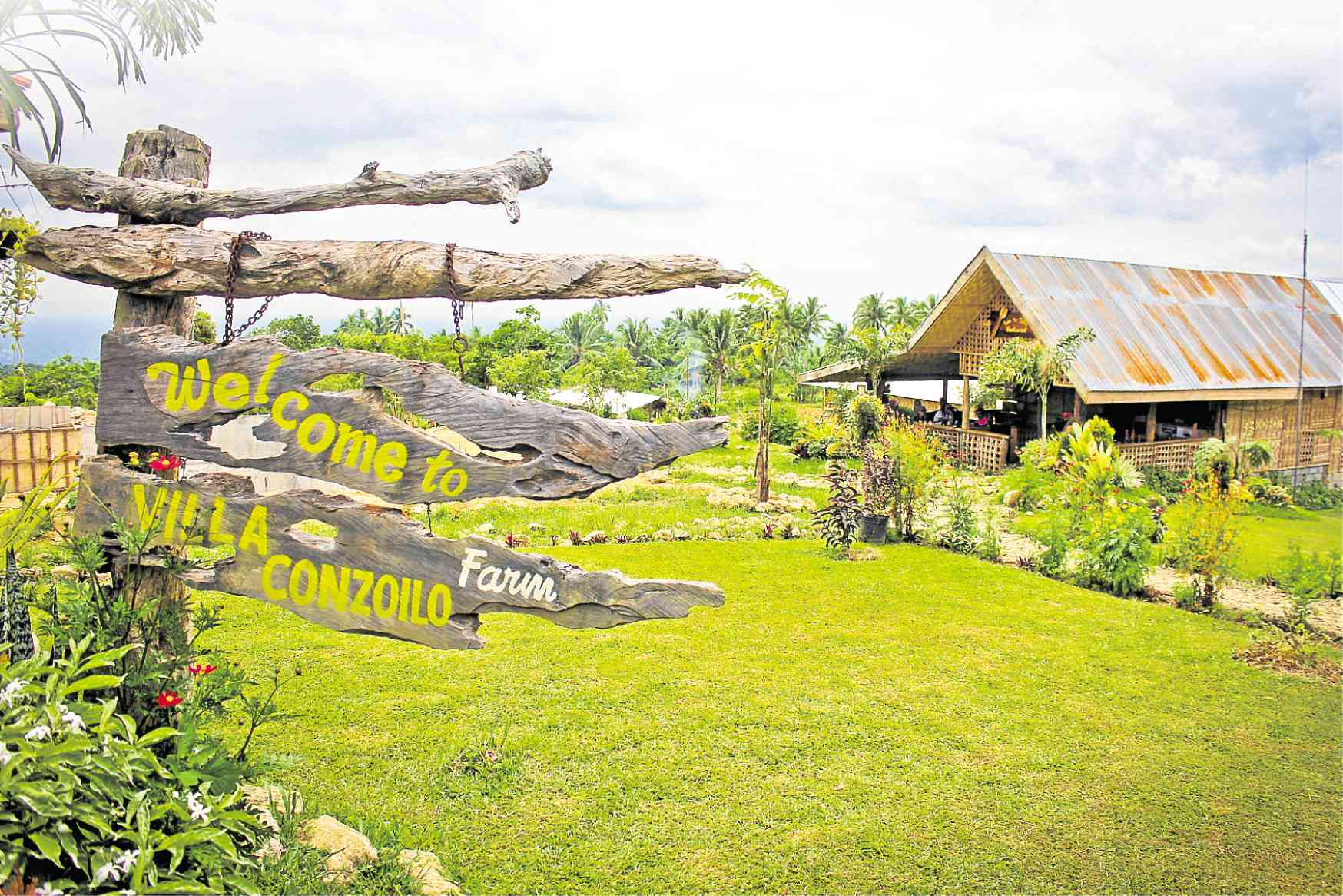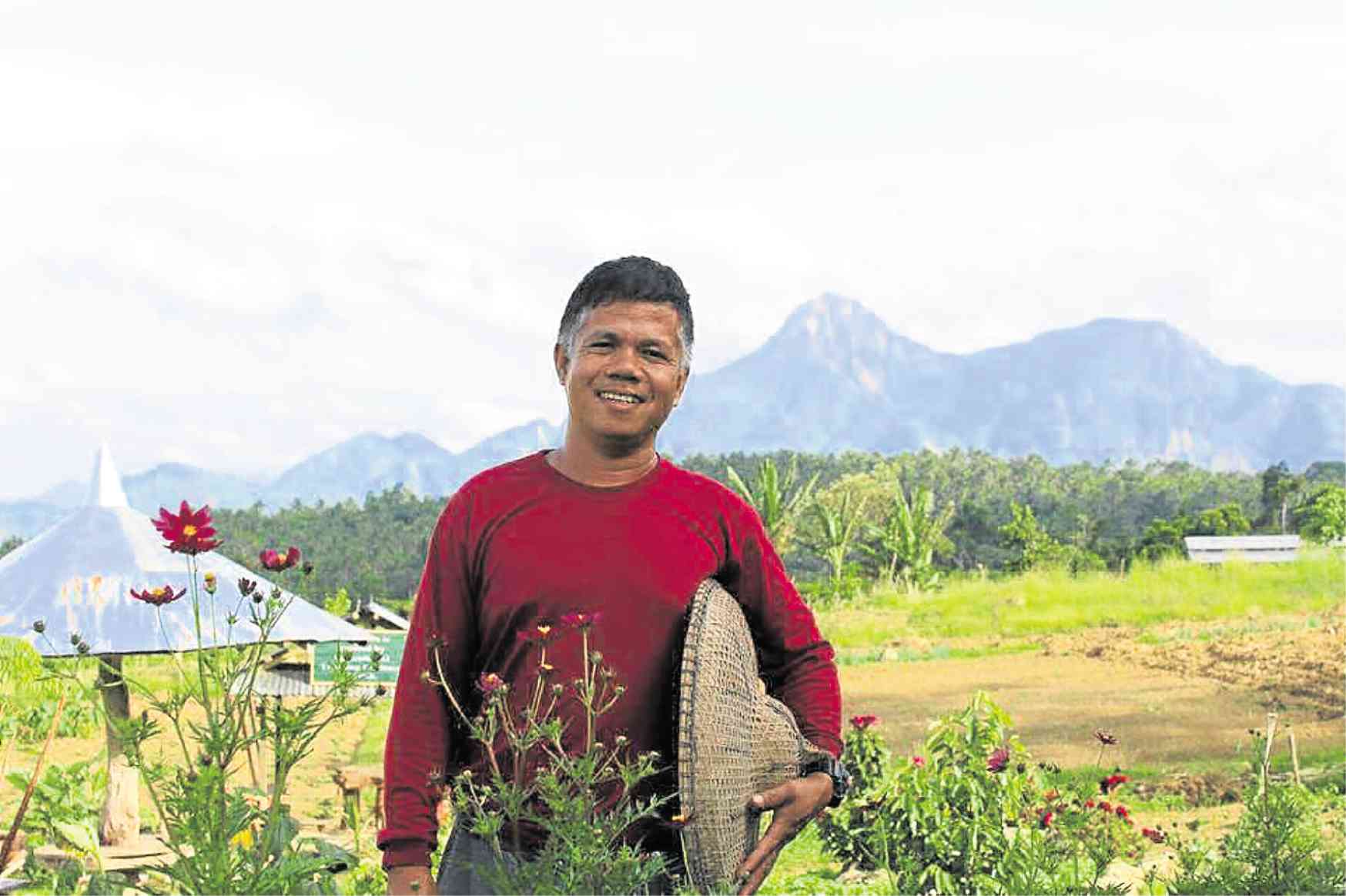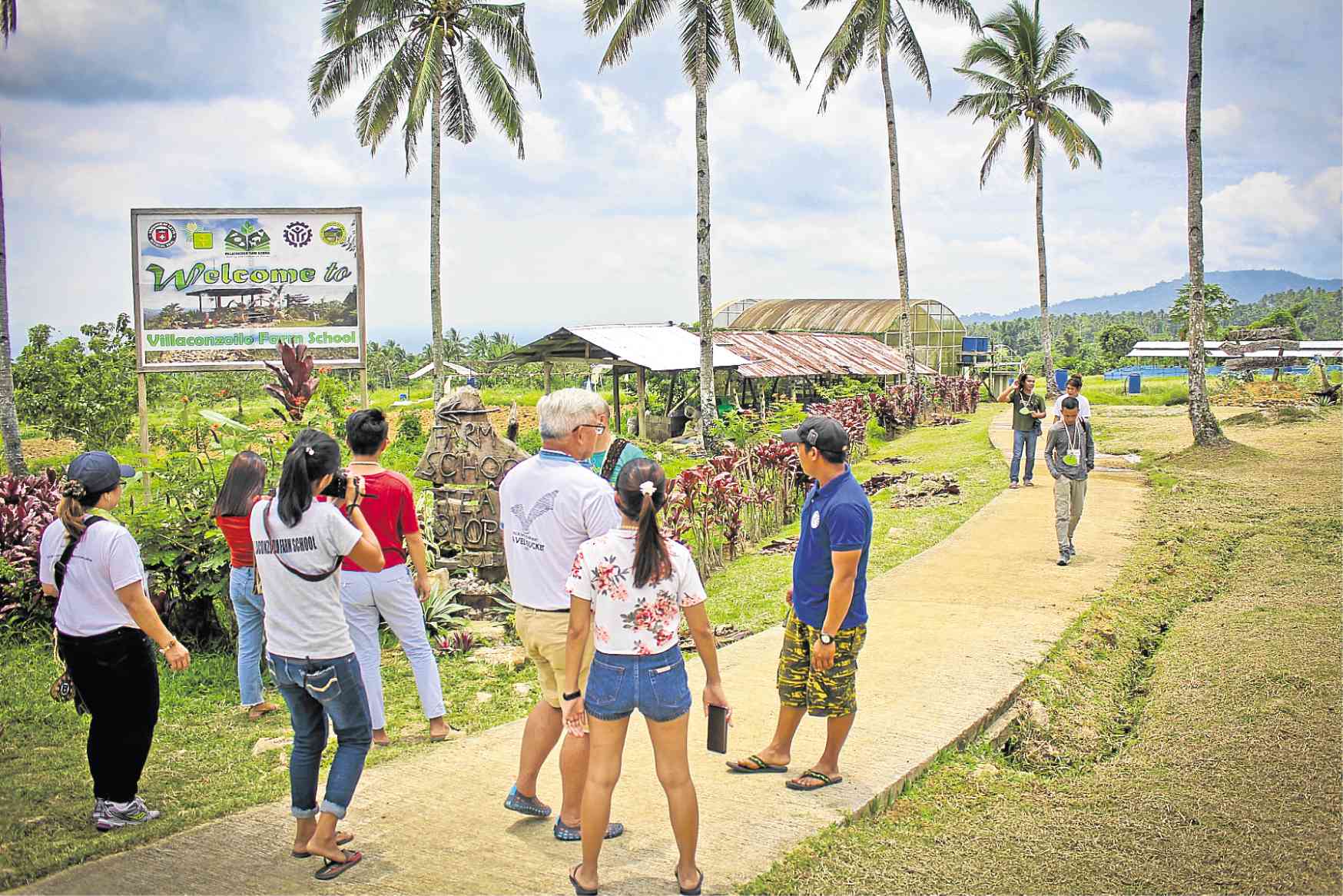Farm tourism grows in Leyte village

FARMERS’ VISION The 23-hectare Villaconzoilo Farm School started from the desire of 18 farmers to make a 1,000-square-meter plot productive and to ensure food supply in the community. The village in Jaro, Leyte, is now a leading site for farm tourism in Eastern Visayas. —PHOTO COURTESY OF DEPARTMENT OF TOURISM-EASTERN VISAYAS
JARO, Leyte — For decades, people dreaded going to Villaconzoilo. Not only was the farming village poor and remote, it was also a sanctuary of communist rebels.
“There was no access road. Poverty was widespread and we were once tagged as a haven of the New People’s Army,” said Alex Aborita, who was the barangay chair from 2007 to 2018.
Community efforts have transformed Villaconzoilo, an interior village of 365 people, into one of the tourist destinations in Jaro, a third-class municipality with annual income of not more than P45 million.
Eighteen farmers led by Aborita organized themselves and cultivated a 1,000-square-meter lot into a lush field of vegetables, which they sold to public markets and restaurants in the town center. Ten years later, the farm expanded to 23 hectares and produced the first tourism farm school in Eastern Visayas.
With its success, Villaconzoilo is now the most developed village in Leyte, with malnutrition nonexistent.
Article continues after this advertisement“Almost all families now own a motorcycle and have household appliances. Parents can send their children to school. They have their own savings. These are the things unimaginable before,” said Aborita, 43, whose wife, Myrna, is the incumbent village chief.
Article continues after this advertisementFarmers’ association
Realizing that one way of getting government attention to the plight of the village was to organize, Aborita convinced 17 of his neighbors to form the Villaconzoilo Community Association and tap the government’s livelihood programs.
With a capital of only P1,800, the group tilled the small plot owned by Aborita, growing lettuce, cabbage, broccoli and cauliflower. They sold their produce on market day in Palo and the nearby town of Carigara.
Some establishments later asked them to supply their vegetables. Sales eventually grew.
“From just 1,000 sq m, we slowly expanded by buying farm lots adjacent to our original farm area until we reached our present area of about 23 ha,” Aborita said.
They also started producing other fruits and vegetables, such as tomatoes, eggplants, watermelon, rambutan, jackfruit, cacao and even strawberries. They penetrated shopping malls in Tacloban City.

“Our guests are enjoying their visit here because they themselves harvest the fruits and vegetables that they want to eat”
Alex Aborita
Training programs
To make farming more sustainable, the group attended training sessions from the Agricultural Training Institute, an attached agency of the Department of Agriculture, and the provincial agriculture office. Their studies convinced them to create a farm school, a relatively new concept being pushed by the Department of Tourism.
On June 15, 2017, the group opened Villaconzoilo Farm School, offering agriculture-related programs and courses on agricultural production, organic farming and horticulture.
More than 1,000 people have so far undergone on-the-job training in the school, which is accredited by both the Commission on Higher Education and the Technical Education and Skills Development Authority. Most of them are students of Visayas State University, considered one of the country’s leading agricultural schools, which is based in Baybay City, Leyte.
The school embarked on another endeavor, farm-to-table restaurant, where customers pick from among the vegetables planted in the farm for cooking. The food is delivered on their table in less than an hour.
“What’s good about our products is they are all naturally grown. We don’t use any fertilizers or chemicals. They can eat them fresh,” Aborita said.
“Our guests are enjoying their visit here because they themselves harvest the fruits and vegetables that they want to eat. They can also catch tilapia from our own pond,” Aborita said.
Farm tour
On ordinary days, more than 100 people visit Villaconzoilo Farm. An entrance fee of P100 is collected for adults and P50 for children and students.
A guide leads visitors around the farm and teaches them how to plant vegetables properly.
Last December, the group opened a swimming pool using spring water from the nearby Mt. Amandiwing, the highest peak in Eastern Visayas.
Aborita estimated that the association’s assets were now worth millions of pesos—an exceptional leap from its initial capital of P1,800 a decade ago.
Members are likewise reaping the benefits of success. Almost all families are no longer availing themselves of state subsidies through the Pantawid Pamilyang Pilipino Program, the government’s antipoverty initiative.

LIVES TRANSFORMED The farm school has given residents of Barangay Villaconzoilo alternative sources of income. —PHOTO COURTESY OF DEPARTMENT OF TOURISM-EASTERN VISAYAS
“It’s really a big help to us, for my family. We could now buy things that we only wished for in the past,” said Diosdado Lego, 54, who has seven children. He now earns at least P25,000 a month.
The association has employed 28 workers—half of them as regulars—who are also children of members.
Aborita said he did not expect that what started as a simple desire to put food on their table would become this big.
Now, he wanted Villaconzoilo to become the center of agritourism in Eastern Visayas so the next generation would no longer seek opportunities outside the village.
“That is my dream,” he said.